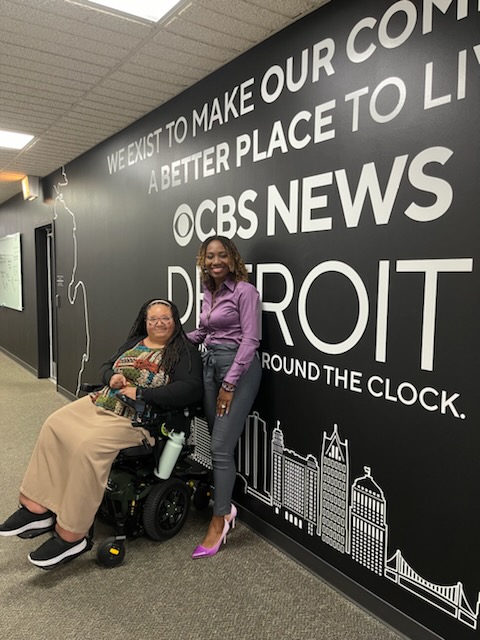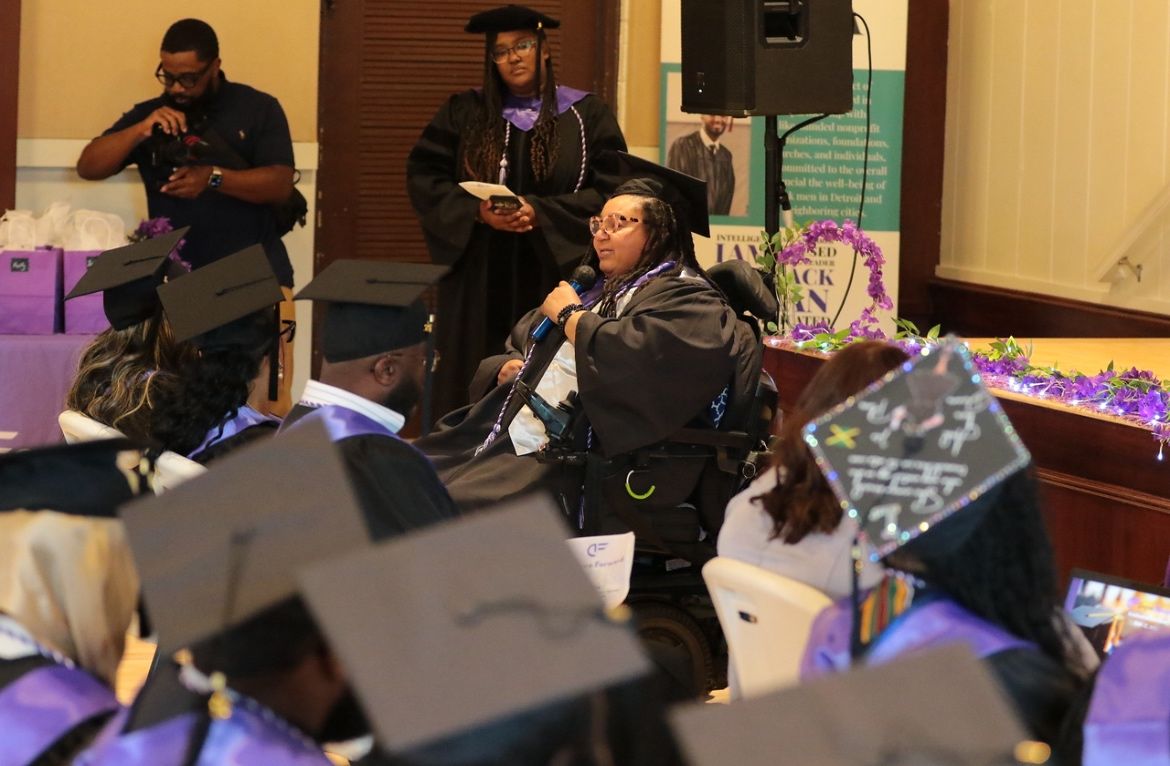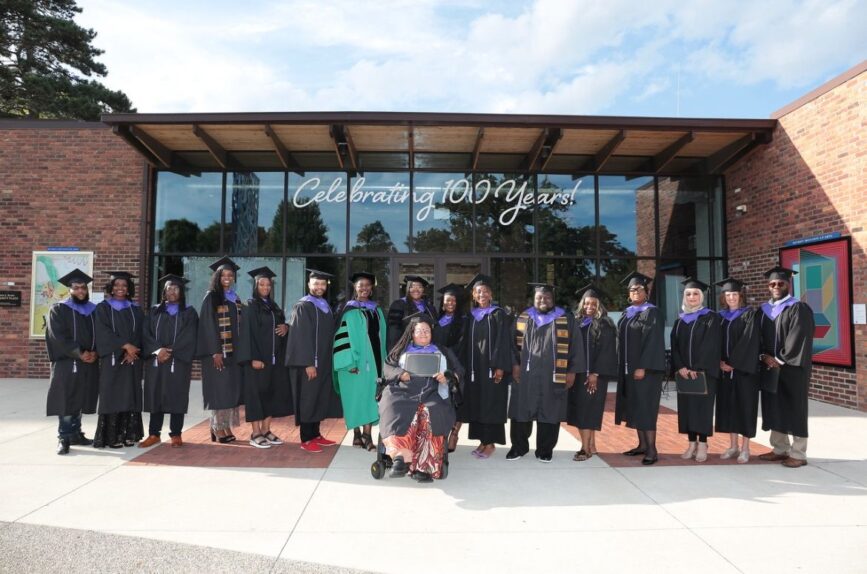Jamie Junior, a disability rights activist and recent college grad, shares her higher education journey.
I am Jamie, a passionate advocate for Disability Rights, as well as Socioeconomic Justice. I was born and have spent my life on the Northwest side of Detroit, Michigan. I am a mother to one child who is 24 and help to care for my 86-year-old mother, Gaynell, who has Dementia. I was also crowned Ms. Wheelchair 2023. I have Cerebral Palsy and have been navigating life primarily on wheels for the past eight years. And now, I am proud to add having a bachelor’s degree to my resume.
My journey to completing my degree was more than two decades long and took place across a number of colleges. While my story may seem unique, everyone’s journey to earning a degree is shaped by their distinct learning styles and past experiences. While many people still earn a degree on a traditional 4-year college timeline, more and more learners are finding themselves on journeys like my own – stopping out and taking longer to complete, all while changing colleges in search for a program that meets their needs.
Helping more learners complete college is so important because earning a degree validates personal growth, opens career prospects, and offers new opportunities that may otherwise be out of reach. Science shows us that at the most basic level, there are four primary learning styles: Visual, Auditory, Read/Write, and Kinesthetic (hands-on). All learners, with and without disabilities, should have an equal chance to achieve success in their own learning style.
Growing up, my family stressed the importance of education because, as my village saw it, it was a way for me to achieve my goal of getting a good job and being independent. To that end, after graduating high school in 1994 I went on to college. Four years later, because of personal and family health challenges, I decided to graduate with an associate’s degree. In 2000, I re-enrolled and began the more than 20-year dance to complete my BA.
I call it a dance because it was much like the hokey pokey and musical chairs if the Goldilocks band were playing. I moved from university to university, trying online and in-person programs while completing some credits along the way. I was constantly navigating physical barriers to access and struggling with socioemotional health concerns that were exacerbated by not always being able to navigate small, poorly shaped, and crowded classrooms, or receive necessary accommodations such as notetaking support or extended time on tests. I was also raising a child and helping to care for an aging family member while working to keep my household afloat. These circumstances, along with my accessibility needs, made it impossible for me to find the right fit to finish my degree.
After expressing my desire to complete my degree and my frustration with traditional college to a colleague, they told me about Degree Forward. As I looked at the website, I read about the one-on-one coaching model, the 90% online platform that would be available to me anytime and anywhere, and the per semester pricing structure. I remember getting excited and thinking to myself that this might just be a good fit for me. Soon after connecting with Degree Forward to learn more, I enrolled in the communications program. Because of the competency-based education (CBE) format that allowed me to move through curriculum at my own pace and the personalized support, I was finally able to finish my BA this year.
With my degree, my ultimate goal is to be useful to the communities I represent. I know that more people with circumstances like mine would greatly benefit from completing their college degree and I hope they are able to find programs that will work with them to break down barriers, rather than creating them. Supporting more accessible systems in higher education, and all facets of public life, is not only essential to the full inclusion of people with disabilities but in creating more inclusive and equitable opportunities for everyone.
You can read more about accessible higher education design in CHEPP’s recent paper, Online by Design: How Accessibility is Fundamental to Learner-Centered Design.



